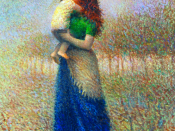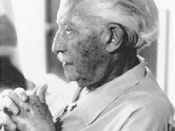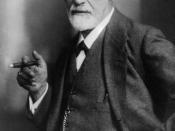Sigmond Freud's psychosexual stages emphasizes how parents manage children's sexual and aggressive drives in the first few years of life is crucial for healthy unique personality development. He developed this theory into stages, which include the oral, anal, phallic, latency, and genital stage. Soon after Freud developed these five stages, Erik Erikson decided that his theory was incomplete. Erikson's greatest innovation was to postulate not five stages, as Freud had done, but eight. Erikson elaborated Freud's genital stage into adolescence plus three stages of adulthood.
Erikson's first five stages, trust vs. mistrust, autonomy vs. shame and doubt, initiative vs. guilt, industry vs. inferiority, and identity vs. identity crisis, correspond with Freud's. Erikson's three additional stages, intimacy vs. isolation, generatively vs. stagnation, and integrity vs. despair, cover the periods after adolescence. Erikson also added that the individual not only develops a unique personality, but also acquires attitudes and skills that help them become active members of society.
In conclusion, both Freud's and Erikson's theories would be very helpful in a classroom setting. But, I found that Erickson's stages of child development would be most useful in the classroom. Each stage is broken down into the effects of development and under development. In the classroom, it would be essential to recognize these described emotions and actions. For example, in a middle school setting a teacher might observe industry versus inferiority, Erickson's forth stage. In this stage a child is expected to begin to develop the capacity to work and cooperate with others. If a teacher experiences that a child is not developing these traits there may be a reason for concern. A child may have problems with family or peers that is leading to feelings of incompetence. A teacher may encourage this type of child to become more involved with the...



Good
the essay is short but informative
0 out of 0 people found this comment useful.